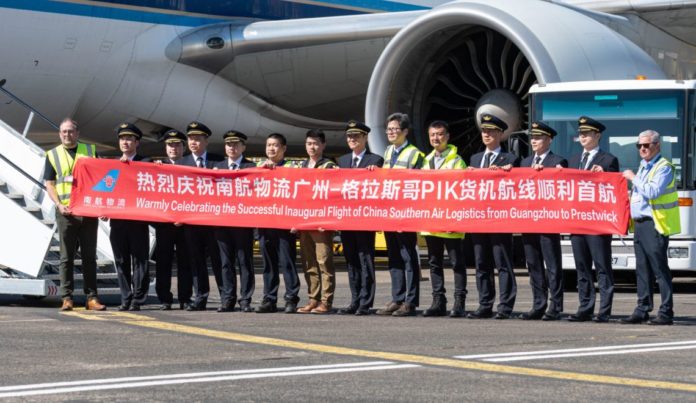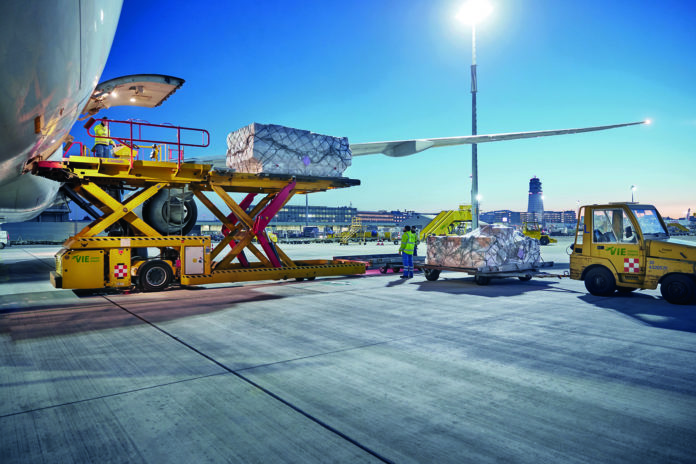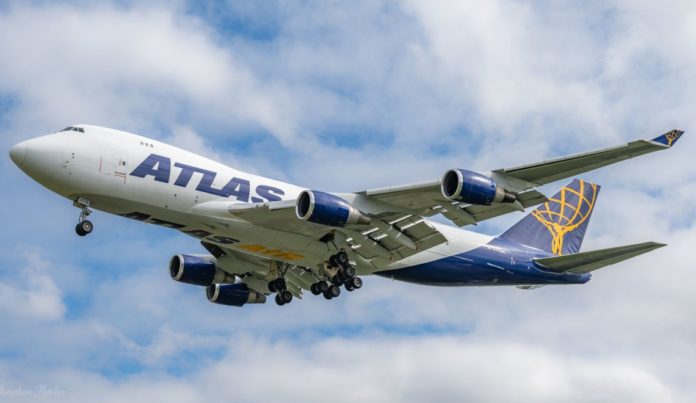Atlas Air and Ethiopian Cargo have launched regular flights into East Midlands Airport, both from China.
US-based Atlas Air will operate five 747 freighter flights a week throughout the summer.
Meanwhile 777F operator, Ethiopian Cargo, has started twice-weekly flights to China which will also continue throughout the summer.
A few days earlier East Midlands Airport announced a deal with Chinese cargo operator YunExpress, its first to any UK airport.
The logistics firm YunExpress began operating its own Boeing 777F freighter flights in partnership with Central Airlines in May.
The flights will operate initially twice a week, but there are plans to increase frequency. Central Airlines is based in Hainan, flying to 12 countries and 43 airports last year.
The Tuesday 13 May arrival got the red carpet treatment and was greeted by representatives from the Chinese Embassy to the UK, Chinese Chamber of Commerce and East Midlands Chamber of Commerce.
East Midlands Airport’s managing director, Steve Griffiths, said: “These new operators are a major coup for the airport and point to our status as the UK’s best-placed airport for the ongoing growth in express air cargo. While there are constraints at many other airports, we have capacity for more cargo flights, can operate 24/7 and can quickly get goods from aircraft to anywhere in the UK.
“YunExpress’s plans, and Central Airlines’ commitment to twice-weekly flights initially, together provide a long-term presence at East Midlands.”
General manager of YunExpress, Bole Xia, added: “This new route not only expands our European network but also reinforces our commitment to delivering faster, more reliable services to our customers.
“With EMA’s strategic location at the heart of the UK’s thriving e-commerce sector, we are confident in our ability to enhance delivery speed and efficiency. This achievement reflects our ongoing dedication to innovation and excellence in global logistics.”
East Midlands Airport’s head of aviation David Craig said: “We have established ourselves as the UK’s leading express air freight hub and are demonstrating that we are open for more cargo business. Our strategic central location and flexibility around night flying help to attract new cargo operators looking for a way into the UK market and finding many other airports are over capacity and congested.
“Landing the deal with YunExpress and Central Airlines is momentous as they are the first China-based operators at East Midlands. Atlas Air’s new operation demonstrates we are ready, willing and able to adapt to changes in the global supply chain. Meanwhile we know Ethiopian Cargo’s move here is also for a longer-term solution which we are ready and able to accommodate.”

















